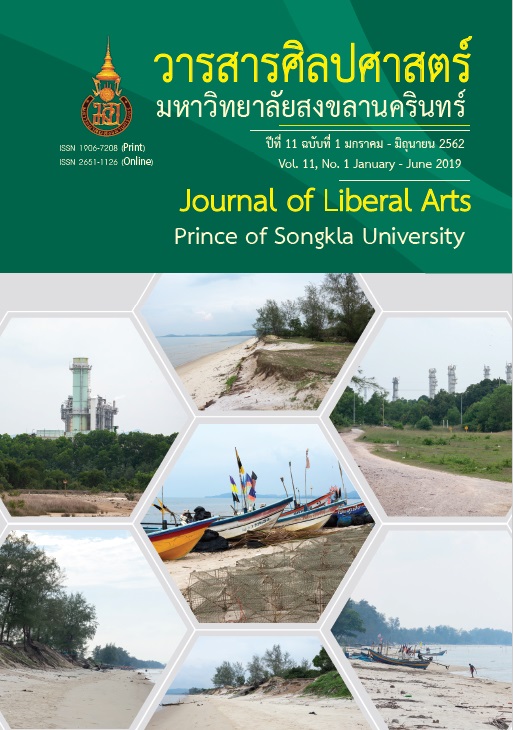Bun Khao Sak Tradition: Beliefs in Ghosts that Unite Humans
Keywords:
beliefs in ghosts, Bun Khao Sak, unity resulting from a traditionAbstract
Bun Khao Sak not only reflects the role of a local Buddhist tradition but also important social behavior that must be preserved. The objective of this study was to analyze the roles of Bun Khao Sak tradition through data collected from related documents and from local wise men in Roi-et and Mahasarakham. The results indicated that beliefs and faith in the deceased was a symbolic representation of feeling gratitude towards ones’ ancestors. They also reflected unity among relatives and people in the community. Thus, Bun Khao Sak is a local creative lesson for a sustainable, harmonious and close-knit community.
References
References
Auytrakul, P. (1984, 4-6 July). Ethical study of Islamic literature In academic seminar in E-san studies: History and culture. pp 23. [in Thai]
Boonjierm, S. (2006). Moradok E-san. Ubon Ratchathani: Moradok E-san. [in Thai]
Janpenk, S. et al. Moonmang E-san traditional. Kalasin: Prasan Printing. [in Thai]
Kaewthep, K. (2014). Media science and culturalsStudies. (3rd ed.). Bangkok: Parbpim. [in Thai]
Na Thalang, S. (2009). Folklore theory, methodology in analysis myth-folk tales. (2nd ed.). Bangkok: Chulalongkorn University Press. [in Thai]
Parijano, Ven.P. (1952). E-san tradition. Ubon Ratchathani: SiriTham. [in Thai]
Pimsan, P. (2014). Ghost belief in folk wisdom. (2nd ed.). Khon Kaen: Prathammakhun. [in Thai]
Pinthong, P. (1999). “Heet Sipsong Khong Sipsee tradition,” Encyclopedia of Northeastern Thai culture by foundation: Encyclopedia of Thai culture, Siam Commercial Bank Public Company Limited. book number 15. pp. 5379-5380. [in Thai]
Sanyawiwatt, S. (2007). Sociological theory, content and basic utilization. (2nd ed.). Bangkok: Chulalongkorn University Press. [in Thai]
Velawong, S.,& S-S. Khon Kaen: Sor. Thammapukdee. [in Thai]
Downloads
Published
How to Cite
Issue
Section
License
The authors retain the copyright to their article but the Journal of Liberal Arts, Prince of Songkla University reserves the exclusive rights to first publication.






